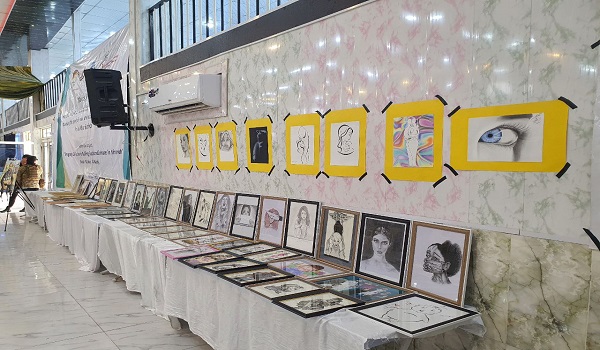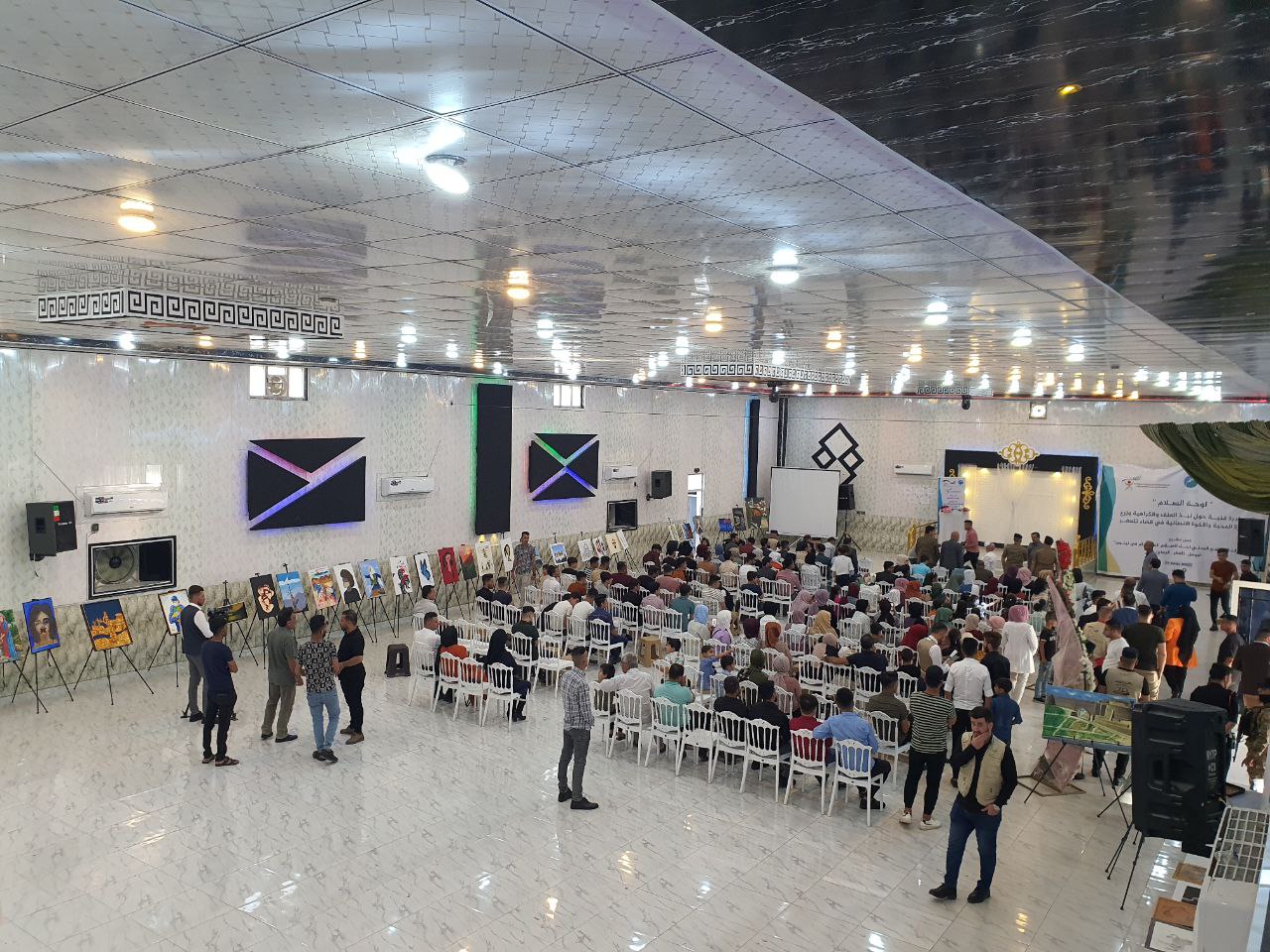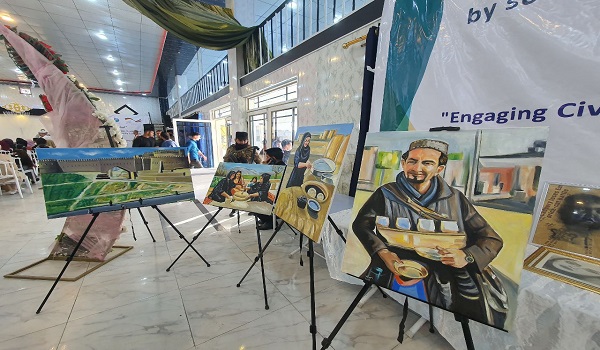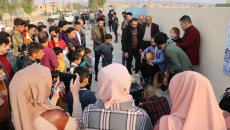Poets and artists in the district of Talafar of Ninewa province are taking various initiatives to erase the consequences of nearly two decades of bloody conflict in ordr to urge for reconciliation and coexistence.
In recent days, Talafar has seen a big festival for poets and painters beside other activities to strengthen peaceful coexistence and tighten social ties between different communities.
The festival featured poems in Turkmen and Arabic, children's plays, painting and craft exhibitions with the participation of 23 artists, exhibition for over 100 different paintings, a book exhibition and honoring a number of activists and institutions working for promotion of peacebuilding.
“The festival was an artistic initiative to stop violence and hatred, with the aim of planting the seeds of love and brotherhood in Talafar,” said Fahmi Saeed, a civil society activist.
Qasim Mohammed Sharif, the mayor of Talafar district, expressed his pleasure to participate in the festival, which he believes aims to strengthen social ties between the sons of the city to the districts and villages.
"The current peace is not limited to opposing war, but has become more comprehensive to strengthen and promote common interests and relations between the ethnicities, which need peace and stability in daily life," the mayor of Talafar told Kirkuk Now.

The district of Talafar, 69 km northwest of Mosul, has been for nearly three years under the control of the Islamic State of Iraq and Syria ISIS, which killed dozens of its people while the fate of 1,300 of them is still unknown after that it has kidnapped them from the first hours of its control back in 2014, including Children and women.
Talafar, which has a population of about 520,000 people, is distributed over the city center and three sub-districts: Rabia, Zummar, and Al-Ayadiyah. Majority of its residents are Sunni Muslim Turkmens, while Shiite Turkmens, Arabs and Kurds reside some rural areas and villages.
Daesh committed atrocities in June 2014 when they controlled the town of Talafar. 1300 people were abducted: 700 men, 470 women and 130 children, among them 400-500 in ISIS controlled prisons in Syria, a statement by Turkmen civil society NGOs said last year.
Ahmad Al-Kubaisi, director of the festival, told KirkukNow that the festival was initiated by artists from the center of the district and its three sub-districts who participated in the training for several days within the framework of the community participation project in building sustainable peace.

According to Al-Kubaisi, the project will also cover the districts of Tal Afar, Ba'aj and Mosul, such as the Tal Afar festival, which was filled with poetry, paintings and crafts and phrases and words that strengthen love and peace between communities.
Earlier, the administrative units of western Ninewa, Talafar organized a conference to discuss the security situation and reconciliation in the region, in the presence of Arab, Turkmen, Kurdish and Ezidi tribes, with the aim of strengthening coexistence and eradicate extremism.
After the Iraqi government declared the defeat of ISIS in August 2017, about 60% of the displaced Turkmens returned to Tal Afar, while the others, who preferred not to return, are still in Najaf, Karbala and Babylon. In addition to the Kurdistan Region, parts of the mare still in Kirkuk while others migrated to Turkey.
Turkmens are considered the third largest ethnic group in Iraq after Arabs and Kurds, residing almost exclusively in the northern towns and villages stretching from Talafar through Mosul, Erbil, Altun Kupri, Kirkuk, Tuz Khurmatu, Kifri and Khanaqin. They are half Sunnis and half Shiite.






